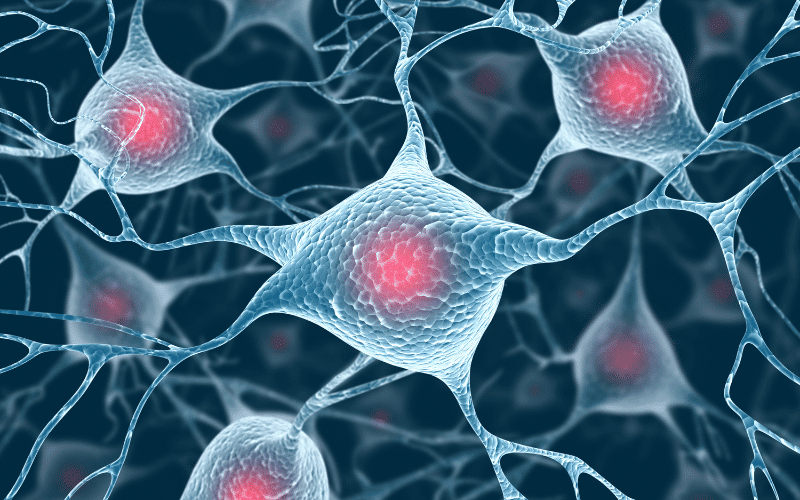8. Neuronal Degeneration: The Cascade Effect

At its core, Huntington’s disease is a condition of neuronal degeneration. While the genetic mutation initiates this process, it’s the cascading effects on neurons that eventually lead to the physical, cognitive, and psychiatric symptoms associated with the disease.
In Huntington’s disease, specific neurons seem to be more vulnerable. These include the medium spiny neurons in the striatum, a critical area of the brain involved in motor control and other functions. As these neurons degrade and die, the functions they control become increasingly impaired.
The abnormal huntingtin protein doesn’t just impact neurons directly. It also disrupts various cellular processes, leading to oxidative stress, mitochondrial dysfunction, and impaired energy metabolism, among other issues. This cascade of harmful effects compounds the neuronal damage, leading to the progressive nature of Huntington’s disease. (8)